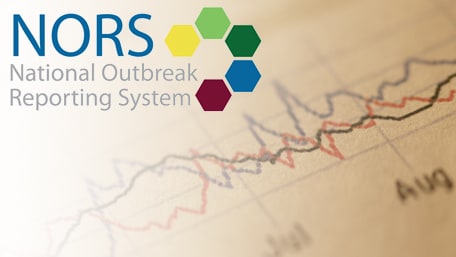At a glance
The National Outbreak Reporting System (NORS) supports outbreak reporting by partners in state, local, and territorial public health agencies.

Purpose
Through NORS, CDC collects reports of enteric disease outbreaks caused by bacterial, viral, parasitic, chemical, toxin, and unknown agents, as well as foodborne and waterborne outbreaks of non-enteric disease. NORS also collects reports of certain fungal disease outbreaks.
Tip
What's collected
NORS collects data on these types of outbreaks in the United States:
- Waterborne disease outbreaks – all outbreaks of respiratory, skin, enteric or other types of illness spread through water, including water that people drink, swim in, or use for other purposes
- Foodborne disease outbreaks – all outbreaks spread through food
- Animal contact disease outbreaks – all outbreaks of enteric illness spread to humans from contact with animals, such as a chicken or pet turtle, or their environments
- Person-to-person transmitted disease outbreaks – all outbreaks of enteric illness spread directly from one person to another through direct contact, such as by handshake
- Environmental contamination outbreaks – all outbreaks of enteric illness spread through contact with other environmental sources, such as dirty linens or surfaces that people touch in bathrooms, as well as outbreaks of blastomycosis, coccidioidomycosis, histoplasmosis, or sporotrichosis
- Other enteric illness outbreaks – all outbreaks of enteric illness spread through other, unknown, or indeterminate means
Did you know?
How data collection works
NORS is a valuable tool for collecting outbreak data needed to improve public health
Outbreak investigations are most often initiated by state, local, and territorial public health agencies and by CDC. These agencies report outbreaks through NORS. The system collects information such as
- date and location of the outbreak,
- the number of people who became ill and their symptoms, and
- the pathogen that caused the outbreak.
CDC checks these data for accuracy and analyzes them to identify national trends and to gather information that could prevent future outbreaks.

In addition to state, territorial, and local health departments, other organizations that collaborate with CDC on outbreak surveillance and prevention include
